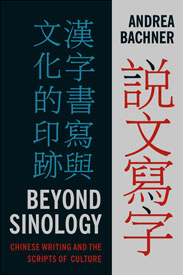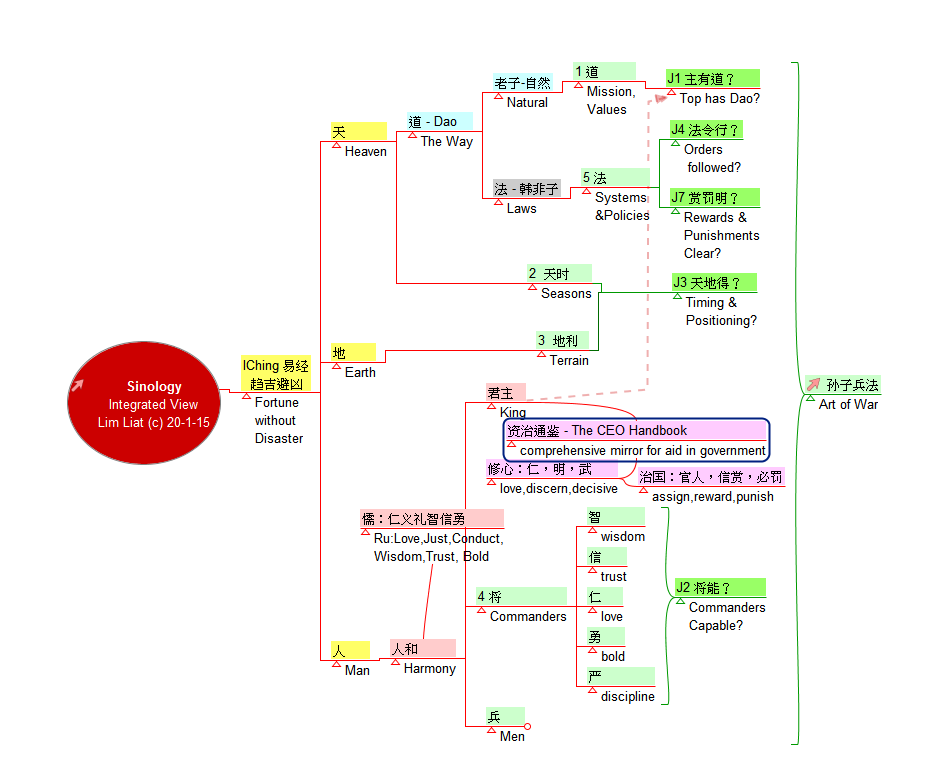Sinology
The Sinology ( "China Studies " or " China Customer"; Chinese汉学/汉学, Pinyin Hanxue ) is a specialized field of language and cultural studies, which originated in the 16th century, and deals with the Chinese language, writing, philosophy and history.
The beginning of Sinology did Christian missionaries who studied the Chinese language and culture for their activity in China. The first translations of Chinese classics appeared, therefore, also in Latin, hence the name Chinese Studies comes as is " Sina", probably derived from the Qin Dynasty in 221 BC, the Latin word for China. Conversely, the missionaries translated the Bible into Chinese that time and wrote reports on the hitherto little-known China, which were recorded in Europe with great interest.
History of Sinology
The first Chair of Chinese Studies was established at the beginning of the 19th century in Paris. In the German-speaking world today there are about 30 universities with facilities for Chinese Studies.
The Chinese Studies is a relatively young discipline in Germany. It was not until the early 19th century began at all, scientifically to deal with China. In the years 1829-1831 the orientalist Carl Friedrich Neumann acquired in Guangzhou 12,000 Chinese volumes, which he shipped to Munich and form the basis of the East Asian collection of the Bavarian State Library and the State Library in Berlin. From 1833 onwards taught Wilhelm Schott in Berlin Chinese and Chinese philosophy. Groundbreaking research in China were the geological and geographical explorations Ferdinand von Richthofen from the early 1860s. 1887 including the Chinese language teaching, serving Department of Oriental Languages in Berlin and the first sinological seminars were established. 1889, the first German chair of Sinology at the University of Leipzig was established, first Professor was Hans Georg Conon of the Gabelentz, only in 1912 was followed by a professorship in Berlin, JJM de Groot and 1914 at the Colonial Institute in Hamburg under Otto Franke.
During the colonial period, during which the German Empire also had the Chinese colony of Jiaozhou Bay, a growing interest in Chinese culture. The exile of many China scholars in the time of National Socialism hurt the German Sinology sustainable.
Sinology in Germany
Since the opening policy of the People 's Republic of China in the 1980s, the Sinology in Germany is no longer among the orchids subjects and Sinology first-year students this time were good career prospects prophesied. Today annually close a little less than 200 people (of which more than 70 percent women) from the study. Sinologist are neither interpreters nor economists, however, there are two subjects with combined degree programs.
Currently, about 1,900 German and 440 foreign students enrolled in the subject are Sinology (including Korean Studies ) in Germany. Take fewer than 500 freshmen / inside a year studying new on, while for instance / inside are much more in the English language and literature with 10,000 students annually. The current importance of China and the frequent mention of the country in the German media contributes a part to the fact that the number of students in recent years, especially in bachelor's degree programs, increase.
For the study of Sinology no previous knowledge is expected in Germany, as a rule, however, many textbooks are available only in English, which makes knowledge is recommended. Today, it is common to spend a part of their studies in China or Taiwan.
The official standard study period (excluding semester abroad ) is nine semesters, with the average in Würzburg is 10 semesters, in Tübingen at 15 semesters ( Masters ).
The introduction of the bachelor's degree program at several German universities the normal period could indeed be significantly lowered to three years, but this reduction is accompanied by a limitation of the study content, therefore a specialization in certain parts of the Sinology is necessary in bachelor's degree programs. So, for example, clings Bachelor of Modern China in Würzburg, the classical literary language and content focuses on the recent history and the current social, political, economic and cultural situation of China. For students who want to comprehensively deal with China, offers itself after a Master's program at.
Unfortunately, in most Chinese Studies degree programs is the program in Chinese language is not sufficient that even a master's degree in Chinese language area could be connected (according to the Association of Chinese, this would be 1200 to 1600 contact hours ). Often, the lack of language training staff therefore still focused primarily on passive reading skills in Chinese. A stay in China, although rarely prescribed fixed in the curriculum, but is already recommended for the sake of deepening of language skills.
Especially the social sciences working sinologist are aware that their publications can influence their working conditions in the People's Republic of China also existentially, as prevail in the People's Republic regarding freedom of research other conditions, as they are for example to be found in Germany. This situation is both a challenge for the researchers involved, but on the other hand still has the opportunity in a meta- Sinology by " observing the observer " ( Niklas Luhmann) to gain knowledge about China.
Scientific institutions of Sinology
Scientific societies in Chinese Studies
- German Association for Chinese Studies Association ( DVCS )
- German China Society e.V.
- European Association of Chinese Studies
- German Association for Asian Studies e.V.
Scientific Publication Series of Sinology
- Berliner China Studies
- Berliner China - books
- Journal of Current Chinese Affairs
- Monumenta Serica
- Oriens Extremus
- T'oung Pao (通报), founded in 1890, first international journal of Chinese Studies.
Research institutes
- Institute of Asian Studies of the GIGA German Institute of Global and Area Studies
Universities with Chinese Studies degree programs in German-speaking
- Albert -Ludwigs- University of Freiburg, Sino Logical Seminar - Bachelor's degree program since 2007 with a focus on modern China and a historical social science access to the compartment
- Free University of Berlin, East Asian Studies - Master's degree program; China studies bachelor's degree, master's degree program (since WS 2008/ 09)
- Humboldt -Universität zu Berlin, Institute for Asian and African Studies - Master's degree program with a linguistic orientation, bachelor's degree
- Ruhr- University Bochum, Department of East Asian Studies - Bachelor's degree program
- Rheinische Friedrich- Wilhelms- University of Bonn, Institute of Oriental and Asian Studies, Department of Chinese Studies - Bachelor's degree Asian Studies and master's degree in History and Culture of China Region, Mongolia, Tibet ( Chinese Studies )
- Hochschule Bremen, economic Sinology
- Technical University of Dresden, East Asia Center
- University of Duisburg -Essen, Duisburg, Institute of East Asian Studies
- Friedrich- Alexander -University Erlangen -Nuremberg, Institute for non-European languages and cultures - Master's Degree ( discontinued), Bachelor 's and Master's degree program, Department of Chinese Studies
- Johann Wolfgang Goethe University in Frankfurt am Main, Fachbereich 9 - Sinology; Bachelor's degree program since 2006, Master since 2009
- Georg -August- University Göttingen, Göttingen Chinese Studies, East Asian Studies - Modern Chinese Studies (mono -BA and Master), Modern China (Dual -BA ), Chinese as a Foreign Language ( Zweifach-BA/Lehramt ), Master Chinese Law & Comparative Law, Master of Education ( from WS 2013/14 ), promotion
- University of Hamburg, Asia - Africa Institute, Department of Chinese Language and Culture - Master's Degree ( BA conversion to WS 2007)
- Ruprecht -Karls- University of Heidelberg, Centre for East Asian Studies - Master's degree program with classical Chinese and modern Chinese Preparatory Course ( discontinued), bachelor's degree program with a focus on East Asian Studies Chinese Studies
- Christian -Albrechts -University of Kiel, Sino Logical Seminar - Master's Degree ( discontinued)
- University of Cologne, East Asian Studies, Senior Chinese Studies (Master of Arts ), Modern Chinese Studies (Master of Arts ); Regional Science Bachelor China; Cultures and societies of East Asia Bachelor
- Fachhochschule Konstanz, Applied global economy languages, business Sinology
- University of Leipzig, Institute of East Asian
- East Asia Institute at the University of Applied Sciences in Ludwigshafen am Rhein - Study of Business Administration with a focus on China
- Johannes Gutenberg University Mainz, Department of Applied Linguistics and Cultural Studies (FASK ), Institute for Intercultural Communication / Chinese, BA (Bachelor of Arts) / M. A. (Master of Arts) "Language, Culture and Translation " Chinese
- Philipps- University Marburg, Department of Chinese Studies - Master's Degree ( discontinued)
- Ludwig- Maximilians- University of Munich, Institute of Chinese Studies - expiring graduate program with philosophical- cultural scholarly emphasis, Bachelor's degree with a classic focus
- Travel High School Zurich, RHZ Languages , Department of Chinese Studies
- Westfälische Wilhelms -Universität Münster, Institute of Chinese Studies and East Asian Studies - China Studies 2 tray Bachelor
- University of Trier, Department of Chinese Studies - Master's Degree
- Eberhard Karls University of Tübingen, Department of Chinese and Korean Studies - Bachelor 's and Master's degree program, expiring graduate program
- Institute of East Asian Studies, University of Vienna - Bachelor, Master, Doctorate Chinese Studies, Language Course, Master's Degree Translation, International Business Administration - Chinese ( IBW Chinese)
- Julius- Maximilians- University of Würzburg, Institute of Cultural Studies East and South Asia Chinese Studies - Bachelor study program " Modern China " (BA), Master's program " Chinese Studies (MA) "
- University of Zurich, East Asian Studies
- West Saxon University of Zwickau, business Sinology
- Carl von Ossietzky University of Oldenburg, Department of Economic and Law, Master's program " Economic and Legal Sciences (MA) with major field of study China 's economy and Language"










